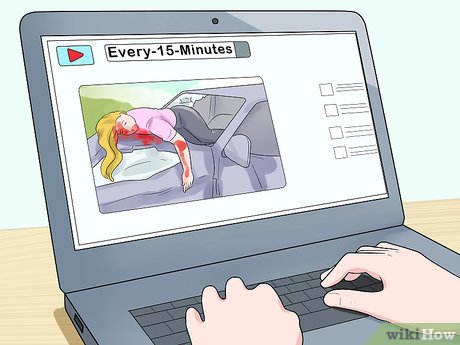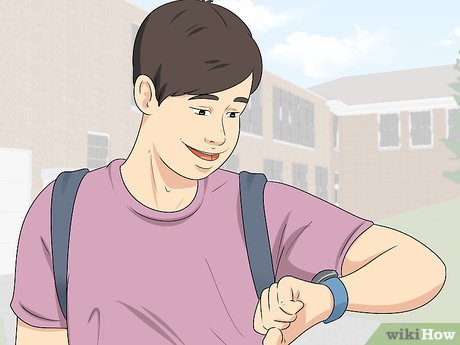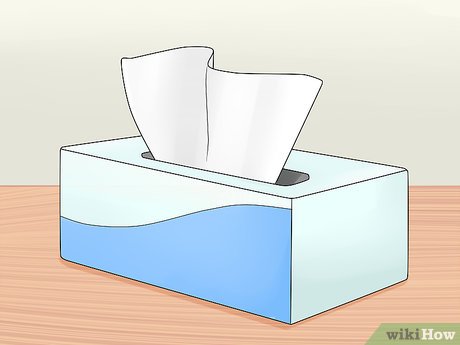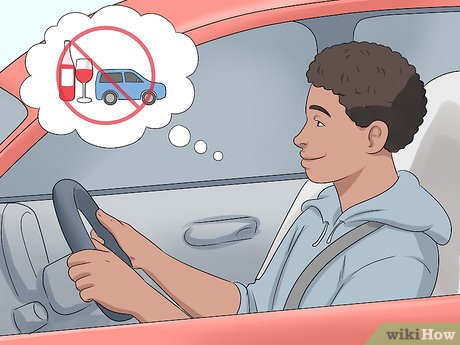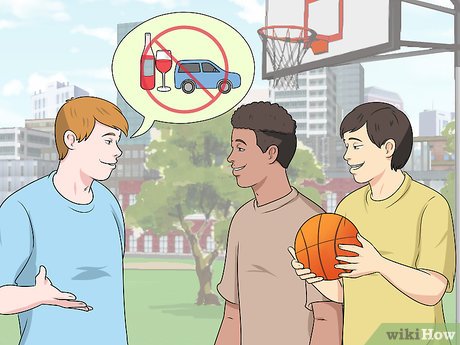How to Prepare for the 'Every 15 Minutes' Program
Part 1 of 4:
Before the Program
-
 Keep quiet. If you've been chosen, chances are the rest of the student body doesn't know about the program. In any case, giving away the fact that you are to "die" will ruin the effects on your fellow classmates.
Keep quiet. If you've been chosen, chances are the rest of the student body doesn't know about the program. In any case, giving away the fact that you are to "die" will ruin the effects on your fellow classmates. -
 Research the program. Your school may wish for you to not know much about the program to keep things a surprise, but unless it's forbidden, look up the program. Plenty of schools videotape and post the videos of their mock crashes online, so you can watch to know what to expect. There are also online news articles and websites that describe the program at lengths.
Research the program. Your school may wish for you to not know much about the program to keep things a surprise, but unless it's forbidden, look up the program. Plenty of schools videotape and post the videos of their mock crashes online, so you can watch to know what to expect. There are also online news articles and websites that describe the program at lengths. -
 Tell your parents. Your parents will most likely need to fill out some paperwork before you participate, and be sure you give them proper notice beforehand.
Tell your parents. Your parents will most likely need to fill out some paperwork before you participate, and be sure you give them proper notice beforehand.
Part 2 of 4:
During the First Day
-
 Pack. Because of the retreat at the end of the day, you'll need to have extra clothes, toiletries, e.t.c. Be sure to have everything you think you'll need - you will be cut off from the outside world. It's also a good idea to pack tissues, even if you don't consider yourself an emotional person - you may be caught off-guard by the events of the day.
Pack. Because of the retreat at the end of the day, you'll need to have extra clothes, toiletries, e.t.c. Be sure to have everything you think you'll need - you will be cut off from the outside world. It's also a good idea to pack tissues, even if you don't consider yourself an emotional person - you may be caught off-guard by the events of the day. -
 Get your hair out of your face. Whether you are in the mock crash or will be pulled out, your face will probably be painted. If necessary, make it easier for the makeup artists by getting your hair away from your forehead and cheeks. Unless you have intentional facial hair, a shave can't hurt, either.
Get your hair out of your face. Whether you are in the mock crash or will be pulled out, your face will probably be painted. If necessary, make it easier for the makeup artists by getting your hair away from your forehead and cheeks. Unless you have intentional facial hair, a shave can't hurt, either. -
 Arrive for school a little early. Your luggage will stick out in the before-school crowds, and lots of people will notice if you don't arrive early. You'll also have a little time for last-minute questions and makeup if needed.
Arrive for school a little early. Your luggage will stick out in the before-school crowds, and lots of people will notice if you don't arrive early. You'll also have a little time for last-minute questions and makeup if needed. -
 Take the program seriously. Since you are a participant, many of the outside students may be watching you to know how to react to the events of the day. If you react to the crash and withdrawals seriously, others are more likely to as well. It's all fake, but it will seem realer with realistic reactions.
Take the program seriously. Since you are a participant, many of the outside students may be watching you to know how to react to the events of the day. If you react to the crash and withdrawals seriously, others are more likely to as well. It's all fake, but it will seem realer with realistic reactions. -
 Be ready to write your letter. At the end of the day, you will receive a letter written by your parents and other relevant people in your life saying the things they wished they had told you before you "died." You will be asked to write letters back. You are not required to write anything, but if you wish to, be thinking about what you'd like to say.
Be ready to write your letter. At the end of the day, you will receive a letter written by your parents and other relevant people in your life saying the things they wished they had told you before you "died." You will be asked to write letters back. You are not required to write anything, but if you wish to, be thinking about what you'd like to say.
Part 3 of 4:
During the Second Day
-
 Have tissues ready. During the second day, you will be reunited with your parents and friends again, making for some possibly emotional moments.
Have tissues ready. During the second day, you will be reunited with your parents and friends again, making for some possibly emotional moments. -
 Be sure your face is washed well. The longer facepaint is left on, the more 'stuck' it gets.
Be sure your face is washed well. The longer facepaint is left on, the more 'stuck' it gets. -
 Stay serious. The school will most likely have an assembly, during which a video of the crash will be played and a memorial service for the dead students will be held. Again, the student body will watch participants to know how to react, so be a leader and stay solemn.
Stay serious. The school will most likely have an assembly, during which a video of the crash will be played and a memorial service for the dead students will be held. Again, the student body will watch participants to know how to react, so be a leader and stay solemn. -
 Know what happened during the past day. Lots of students will ask you questions - what it was like, what happened after school at the retreat, e.t.c. Know how to answer in advance; it will come in handy between classes when you only have thirty seconds to explain.
Know what happened during the past day. Lots of students will ask you questions - what it was like, what happened after school at the retreat, e.t.c. Know how to answer in advance; it will come in handy between classes when you only have thirty seconds to explain.
Part 4 of 4:
After the Program
-
 Remember the program. The point is to reduce distracted and drunk driving, so don't choose to forget the whole thing and text and drive the next week. It will mean the whole program was useless.
Remember the program. The point is to reduce distracted and drunk driving, so don't choose to forget the whole thing and text and drive the next week. It will mean the whole program was useless. -
 Spend some time thinking about what you learned. What affected you most? Your worth to others? How choices affect you? Whatever it was, have it in mind and think of it so it changes who you are not just for a few days, but for a lifetime.
Spend some time thinking about what you learned. What affected you most? Your worth to others? How choices affect you? Whatever it was, have it in mind and think of it so it changes who you are not just for a few days, but for a lifetime. -
 Tell others about your experience. Only a few students are chosen to participate in the program. Others are influenced, but don't receive the same effects that participants do. If you share your experience, feelings, and discoveries, chances are that the program will be more effective.
Tell others about your experience. Only a few students are chosen to participate in the program. Others are influenced, but don't receive the same effects that participants do. If you share your experience, feelings, and discoveries, chances are that the program will be more effective. -
 Revisit your letters and other mementos from the program as needed. You may have times when you forget what you learned, but use these souvenirs of sorts to bring you back and help you remember.
Revisit your letters and other mementos from the program as needed. You may have times when you forget what you learned, but use these souvenirs of sorts to bring you back and help you remember.
Share by
Samuel Daniel
Update 24 March 2020

